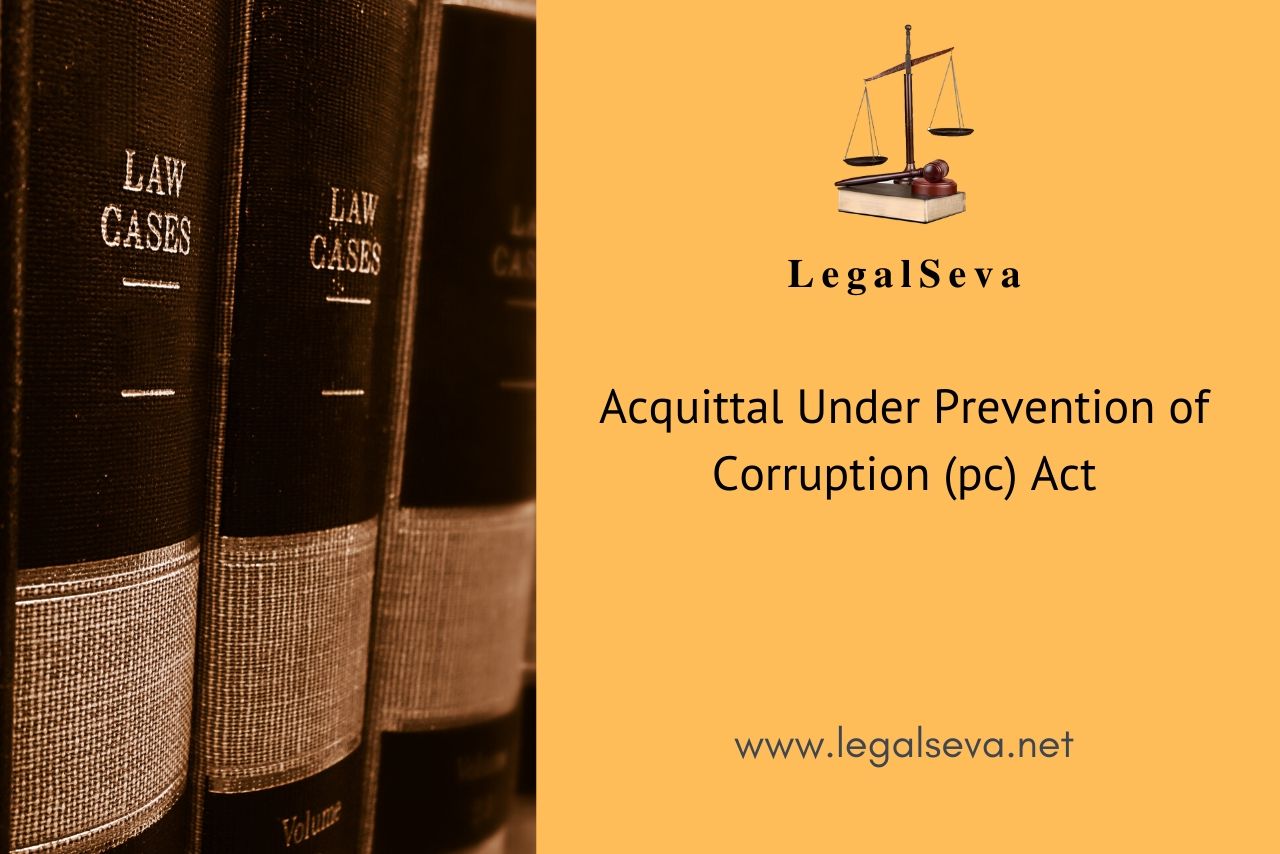Last Updated on June 15, 2024 by Satish Mishra
We must end corruption at all levels but must not ignore the version of other side when corruption cases are brought before the court. It is seen on many occasions even the innocent government servants are implicated in the garb of PC act or a false graft case in short. Not only has the person has to lose all his reputation but sanity and mental well being as well. What to say of their families who have to face severe ostracization from the Indian society and department as well. Life actually becomes hell.
Prevention of Corruption Act, 1988 was introduced by Parliament of India with a sole aim of curing the menace of corruption in government departments and offices. The law defines the public servant and prescribes punishment for the person who gets the benefit and who helps him as well. It is not necessary whether the person helping is a government servant or not. He will still be punished.
Crimes punished under this act are:
1 When a public servant asks for favours or illegal gratification over and above government dues.
2 Indulgence of gifts, perks, and favours from person for business gains going out of the way.
3 Asking for bribe for doing what he is legally bind to do and come under his duties.
4 Helping someone with the system causing illegal gains and benefits.
As per act the cases are ought to be heard by a special judge who can hear the cases summarily as well as sessions trial depending on the nature of a case and department. The act defines penalties starting from 6 months to 7 years imprisonment and fine.
Any offence under sec 13 (1) of the act cannot be investigated without the order of SP (police). Any investigation without the order is null and void as per Umesh Kumar Choubey vs State of Madhya Pradesh.
Few important and noted judgments in Prevention of Corruption of Case.
1. Kali Ram vs State of Himachal Pradesh -If there are two views towards in the accused in a case then in the favour of accused should prevail.
2.Krishan Chander vs State of Delhi Supreme Court – Most essential factor to ascertain whether bribery contemplated under section 7 read with section 13 of the act is to prove demand and acceptance of bribe.
3.Satvir Singh vs. State of Delhi -Hostile witness’s’ evidence cannot be ignored in its entirety mainly because the witness has become hostile
How to secure Acquittal under Prevention of Corruption Act
A. Sanction for prosecution by competent authority in accordance with section 19 of prevention of corruption act is a must and a valid one. Mere recovery of tainted evidence in absence of substantive evidence not sufficient to convict the accused. Mode of rebutting the presumption is drawn under section 20. Chief Officer only Competent Person under Section 113 of Panchayat Act to give sanction for prosecuting under Prevention of Corruption Act.
B. Check section 465 of CRPC reason for error omission or irregularity, sanction from competent authority, sanctions is valid or valid or not, Other Grounds is of demand and acceptance of bribe in course of official duty, Trial free and fair on all aspects without any undue influence.
C. Demand of gratification with cogent and convincing proof of amount received. Acceptance of money voluntarily by the accused knowing it to be bride is to be proved beyond all reasonable doubt, Absence of demand and accepting accords benefit of doubt to the accused
D. Under section 20 of the act invoke on preponderance of probability not proof beyond all reasonable doubt, foundation of facts to be proved by prosecution even the burden lies on accused, conviction under section 13 (2) can’t be sustained when exonerated under section 7 and charge in the section 13 (1) is not included in charge, presumption of under section 20 only in section 7 not in section 13 (b) for second
E. Essential requirement of demand and acceptance, proof of demand is essential under section 7 and 13 of the act.
From the news:
1 Mere possession of currency notes by accused does not prove bribe in a corruption case- Supreme Court by TheHindu.
2 Prosecution failure leads to acquittal of Patwari in corruption case by dailyexcelsior.
3 Maharashtra corruption goes unchecked? Conviction rate on the decline by HindustanTimes.
4 Courts acquitted 3,268 People Booked for Corruption by CBI in last 4 years by NDTV
5 Employees with corruption charges to get promoted if appeal is pending by Business Standard.
Corruption is a serious offence for any public servant and the outcome changes the life of an individual involved. Hope these cues enlighten you about the current law on corruption and how to contest it successfully.
Still in case of any query, please dial 99888-17966 or write to [email protected]. We’ll be happy to hear from you.
